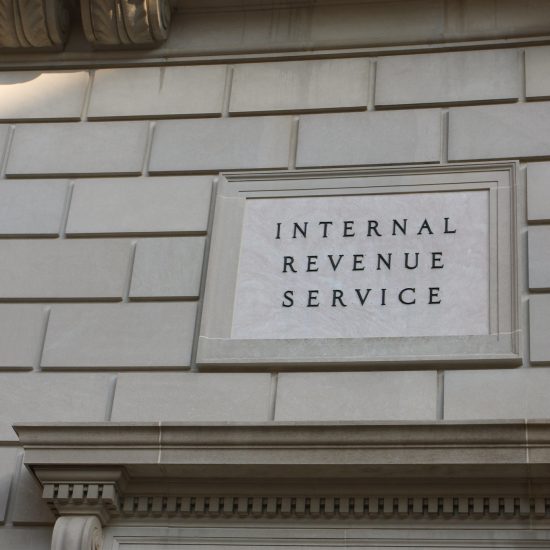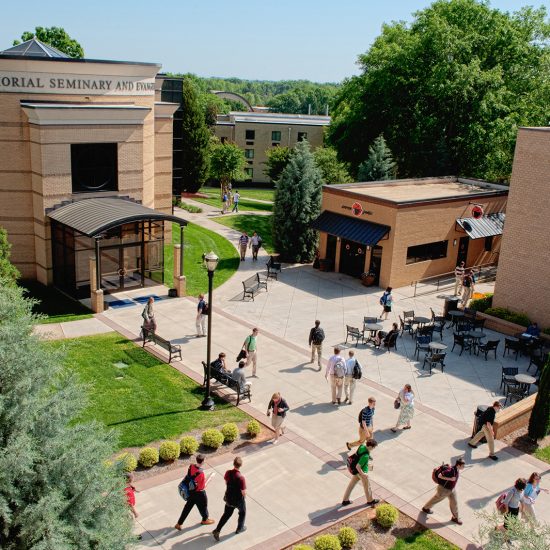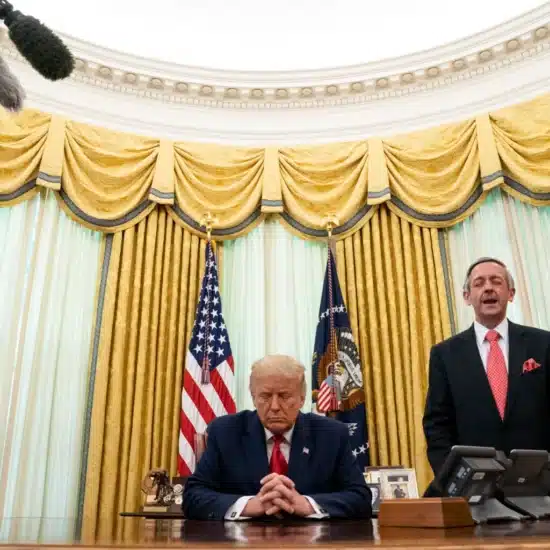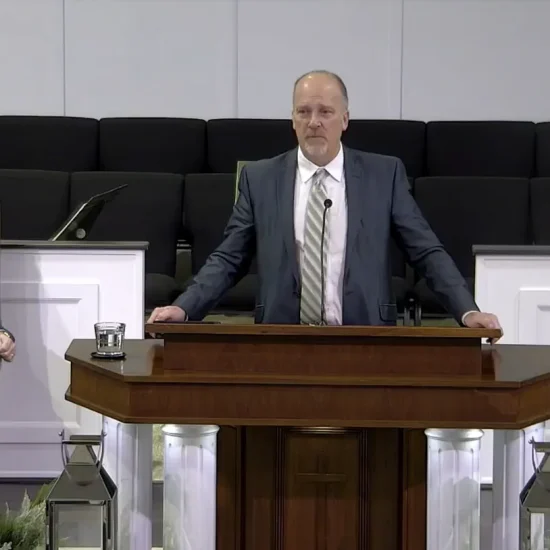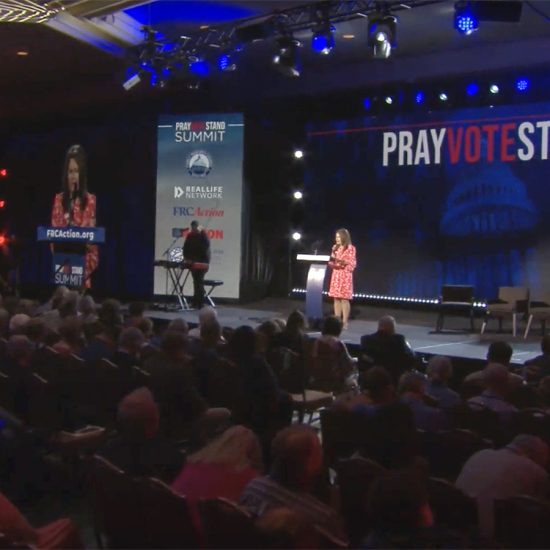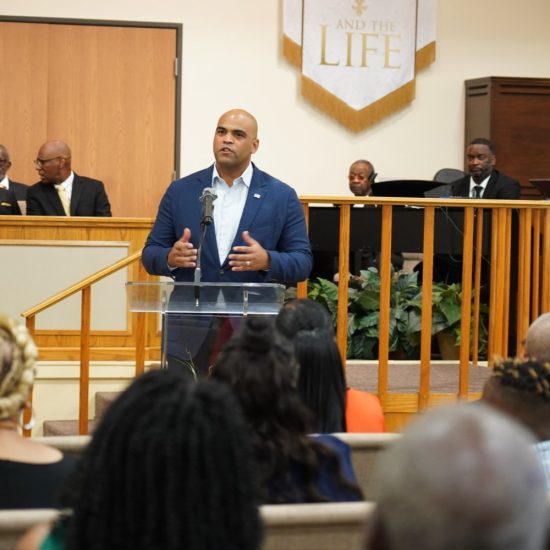Amid national media scrutiny, Hannibal-LaGrange University changed its promotional communications for Wednesday’s chapel talk by Missouri Attorney General Josh Hawley. Word&Way first reported last week that HLGU, a Baptist school in Hannibal, Mo., could violate the IRS’s political activity ban (also called “the Johnson Amendment”) by hosting Hawley, the Republican nominee for the U.S. Senate, a little over a month before the midterm elections.
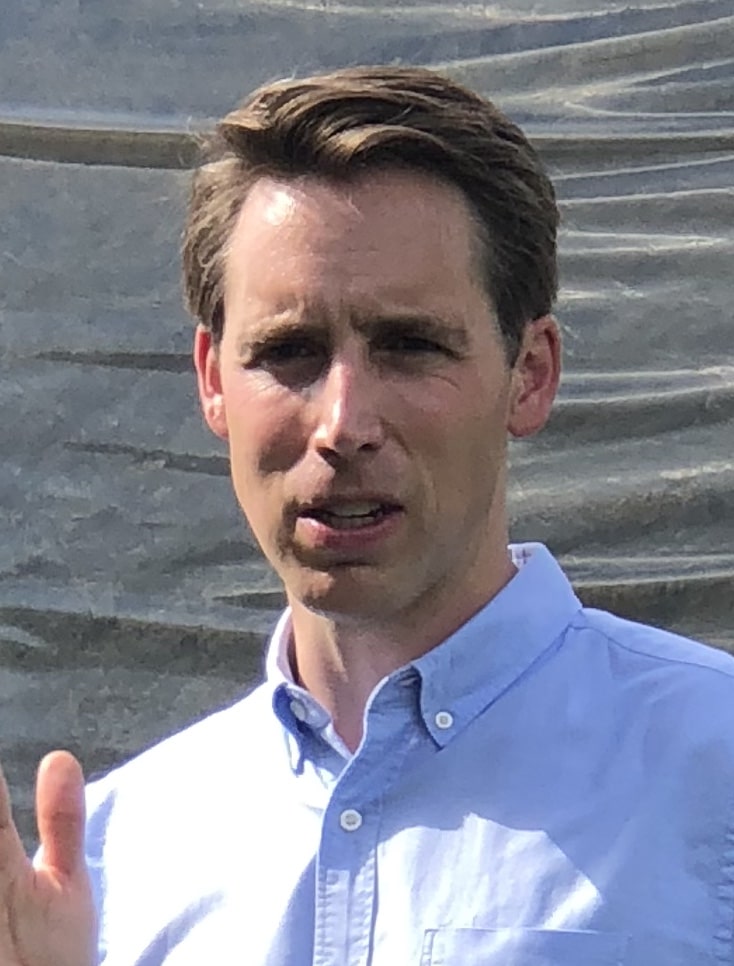 Josh Hawley, speaking in Jackson, Mo., on Aug. 30, 2018 (Wikimedia Commons)After Word&Way’s article on Sept. 25, the Associated Press reported on the story on Sept. 28 and cited Word&Way. As is typical with AP stories, the article reappeared on more than 100 websites of other media outlets across the country, including those of the ABC News, Fox News, New York Times, U.S. News & World Report and numerous local newspapers and television stations.
Josh Hawley, speaking in Jackson, Mo., on Aug. 30, 2018 (Wikimedia Commons)After Word&Way’s article on Sept. 25, the Associated Press reported on the story on Sept. 28 and cited Word&Way. As is typical with AP stories, the article reappeared on more than 100 websites of other media outlets across the country, including those of the ABC News, Fox News, New York Times, U.S. News & World Report and numerous local newspapers and television stations.
As Word&Way reported last week, HLGU could follow IRS guidelines by either giving Hawley’s opponent, Democratic U.S. Senator Claire McCaskill, a similar invitation or by treating it as a non-candidate appearance by not referencing the election or Hawley’s candidacy. Anthony Allen, HLGU’s president, confirmed they did not invite McCaskill to chapel this semester, and HLGU’s chapel schedule and press release about Hawley’s forthcoming visit both mentioned his status as the Republican nominee for Senate.
However, after the public reports last week, HLGU changed its communications about Hawley to align it with IRS rules regarding non-candidate appearances. The IRS Revenue Ruling (an official IRS ruling on how to apply laws to specific situation) on the political activity ban notes 501(c)(3) nonprofits can invite a candidate to speak in “a non-candidate capacity” but that should occur without references to the election or candidacy. Factors that would determine if a nonprofit improperly engaged in partisan politics include “whether either the individual or any representative of the organization makes any mention of his or her candidacy or the election” or “whether the organization clearly indicates the capacity in which the candidate is appearing and does not mention the individual’s political candidacy or the upcoming election in the communications announcing the candidate’s attendance at the event.”
The chapel schedule on HLGU’s website now lists Hawley only as “Missouri Attorney General” and no longer also as “US Senate Candidate.” Additionally, references to his candidacy and even his party were deleted from the version of the news release on HLGU’s website. This sentence no longer appears: “He is the first Republican attorney general in Missouri since 1993 and is also the Republican Party’s nominee for the US Senate in the upcoming November election.”
HLGU also added a disclaimer at the bottom of both the chapel schedule and news announcement about Hawley. Both pages on their website now state: “HLGU and its board of trustees do not officially endorse candidates for political office. Titles and affiliations of chapel speakers are listed for purposes of identification only. Chapel services are worship services for our students, faculty and guests. Invitations to speakers who are known to hold personal faith and convictions consistent with our statement of faith does not constitute and should not be taken as an endorsement for or against any political candidate.”
HLGU’s new communications about Hawley’s visit on Wednesday conform with the IRS’s guidelines on non-candidate appearances, though it is unclear how the IRS would treat the case since HLGU previously highlighted his candidacy in their communications announcing his attendance. Additionally, according to the IRS, keeping his visit a non-candidate appearance will also involve both HLGU officials and Hawley avoiding references to the campaign during his visit.
While HLGU edited its communications to conform to the political activity ban, Hawley continues to argue the ban is “unconstitutional” and should be repealed.

